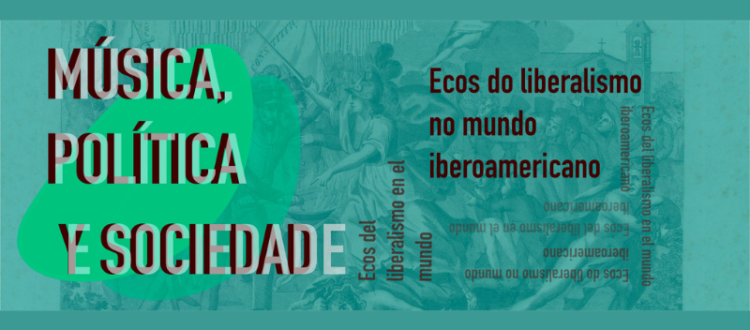Call for papers: Music, Politics, and Society – Echoes of Liberalism in Iberia and the Latin American World
14 – 15 May 2022
Lisbon. CESEM, Colégio Almada Negreiros. Campus de Campolide
Keynote by Juan José Carreras (University of Zaragoza)
Liberalism, as a political ideology and economic doctrine, shaped the 19th century. It set a new framework for commercial relationships, transformed social structures, and supported a new legal regime. Liberalism contributed to the development of representative democracy and the establishment of the modern nation-state. Its implementation in the Iberian Peninsula went hand-in-hand with the profound transformation of relationships between metropoles and colonies. Moreover, its establishment was uneven and discontinuous.
The liberal context fostered profound changes in musical life. The crumbling down of the structures associated with the ancien régime gave way to a new production system. Music, transformed into a commodity, became fundamental in new forms of sociability that developed in salons and theatres. Participation in voluntary societies reached unprecedented heights. New musical genres emerged with these transformations while a market for musical goods, where European and Atlantic spaces met, developed transnationally.
To highlight the importance of this process, CESEM and SPEMI organize a symposium that aims to examine the relationships between music and Liberalism in the Iberian Peninsula and Latin America through multiple perspectives. The scientific committee welcomes proposals in the following subjects:
-Music and politics: censorship and propaganda
-Music and economy: the impact of the disentailment
-The music Market: entrepreneurs, printers, professionals, amateurs, theatres, and salons.
-Nationalisms, internationalisms e Iberisms.
-Music and the press in the Iberian Peninsula and Latin America
-Music and migrants during Liberalism
Proposals should not exceed 250 words and be sent in .doc or .docx format to albertohm@usal.es before 15 November 2021. They may be in Portuguese, Spanish, English, Italian or French.
Papers should not exceed 20 minutes, followed by 10 minutes for audience questions.
The scientific committee will evaluate the proposals before 1 February 2022 and deliver the notification by then.
Scientific Committee: Luísa Cymbron, João Silva, Alberto Hernández Mateos.

